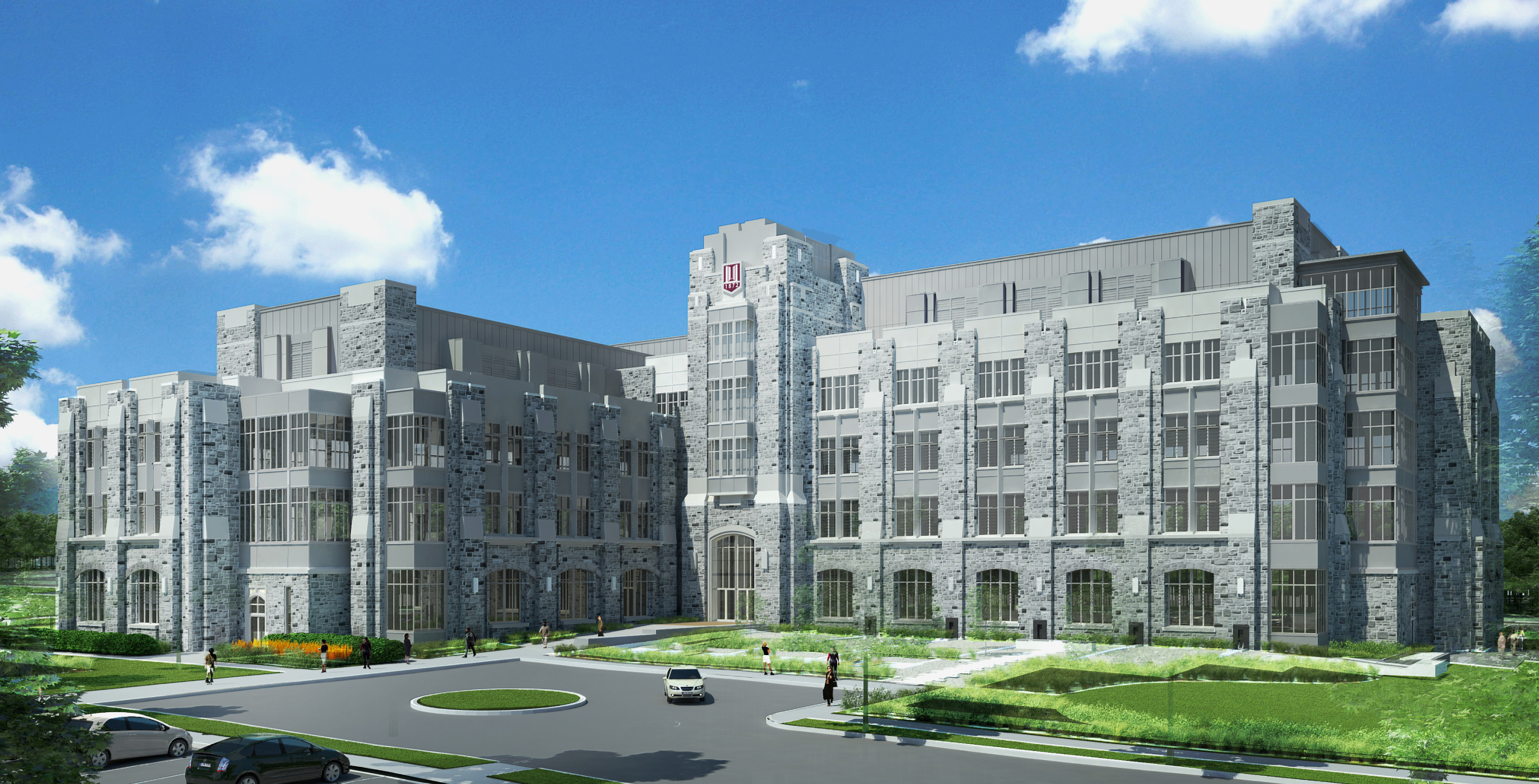Record gifts to support Signature Engineering Building project

An anonymous donor committed $25 million toward the Signature Engineering Building planned for Virginia Tech.
The largest single donation ever given to the 139-year-old institution was one of three multimillion-dollar contributions to Virginia Tech’s College of Engineering highlighted April 28 by university President Charles W. Steger.
Speaking at a press conference at the Inn at Virginia Tech and Skelton Conference Center, Steger also announced $3 million in support for the project from the Quillen family of Southwest Virginia, and the receipt of $17 million from an estate gift in support of the mechanical and chemical engineering departments, both of which will have space in the building.
The Quillens’ support was led by alumnus Michael J. Quillen, who earned his bachelor's degree in civil engineering in 1971 and his master's degree in the subject in 1972, of Bristol. The departmental support, in the form of both scholarships and professorships, is from the late Robert E. Hord Jr., who earned his bachelor's degree in mechanical engineering in 1949 and his master's degree in power and fuel engineering in 1950, of Richmond. Hord’s gift is the largest bequest ever realized at Virginia Tech.
“These three gifts, along with many others received since 2003 – when we launched our $1 billion Campaign for Virginia Tech: Invent the Future – demonstrate how private support provides a margin of excellence for our institution,” Steger said. “This new building, as well as the many new scholarships and faculty assistance funds provided by donors over the life of our campaign, are helping our largest college to raise the bar even higher for engineering education in Virginia.”
Virginia Tech lists the Signature Engineering Building as the No. 1 priority in its capital construction plan, which anticipates $50 million in state support and $50 million in private donations for the project. The four-story building containing nearly 155,000 gross square feet will be built near the corner of Prices Fork Road and Stanger Street, on the university’s main campus in Blacksburg.
Richard Benson, the Paul and Dorothea Torgersen Chair and dean of the College of Engineering, said the new building is essential to address growing enrollment demand, particularly at the undergraduate level. He said his college would like to admit more students, but requires sufficient facilities.
Many corporations rely on Virginia Tech for engineering talent and support the proposed project as way of ensuring a highly-qualified workforce in the commonwealth, said John Sparks, a three-time mechanical engineering alumnus who received his bachelor's degree in 1974, his master's degree in 1976, and his Ph.D. in 1981. Sparks has lobbied for state support of the project and is a director at Aerojet, a major space and defense contractor with two operating locations in Virginia.
Half the engineering degrees issued in the commonwealth in a typical year come from Virginia Tech, Sparks said. And more than 90 percent of those who earned bachelor’s degrees from Virginia Tech’s College of Engineering in 2010 were U.S. citizens, an important credential to employers who serve the military or intelligence agencies, Sparks pointed out.
While talking about important gifts to the College of Engineering, Steger highlighted another commitment of support for the Signature Engineering Building. The $100,000 coming from the Student Engineers’ Council is an extraordinary contribution for a student organization, Steger said.
Council Chairman Brian Keller from Charleston, W.Va., a junior who is majoring in mechanical engineering, said his organization, which donates to the university regularly from proceeds it earns putting on a large job fair, wanted to support a project that would benefit students throughout the College of Engineering.
“This [building project] definitely applies to a large amount of students, and we just knew that it would be one of the best things we could fund this year,” Keller said.
The highly-trafficked area of campus where the building is planned has seen much construction in recent years. The Signature Engineering Building will follow the Inn at Virginia Tech and Skelton Conference Center, Bishop-Favrao Hall, a parking garage, and the Visitor and Undergraduate Admissions Center in opening on the north side of campus near Prices Fork Road. Except for the parking garage, donations were an important part of funding all those projects. After the Visitor and Undergraduate Admissions Center is completed this summer, Prices Fork Road will replace Southgate Drive as the signposted exit off U.S. Route 460 for drivers headed to Virginia Tech.
Highlights of the Signature Engineering Building project include
- 154,935 gross square feet;
- Eight new classrooms;
- More than 40 instructional and research laboratories;
- More than 150 offices for faculty, staff, and graduate students, including conference rooms;
- 300-seat auditorium for large lecture classes and presentations;
- First floor café serving students, faculty, and staff;
- Third floor communications center for the engineering education department; and
- A project goal of obtaining LEED silver rating as defined by the LEED Green Building Rating System for New Construction and Major Renovations.







